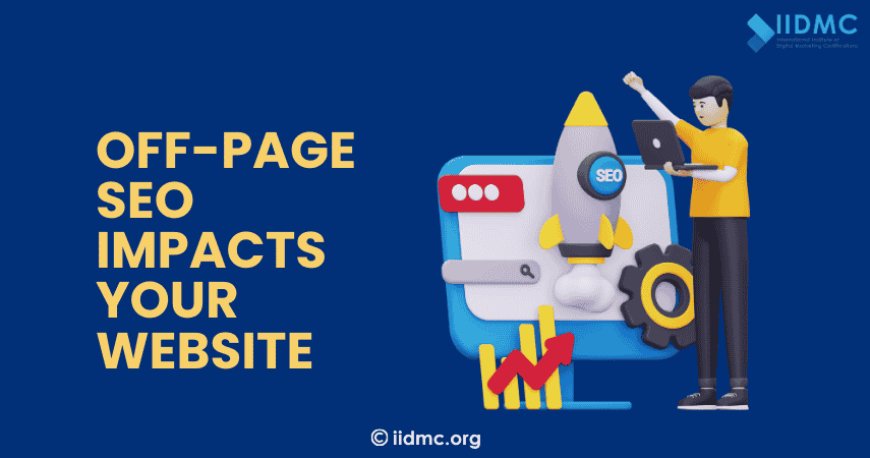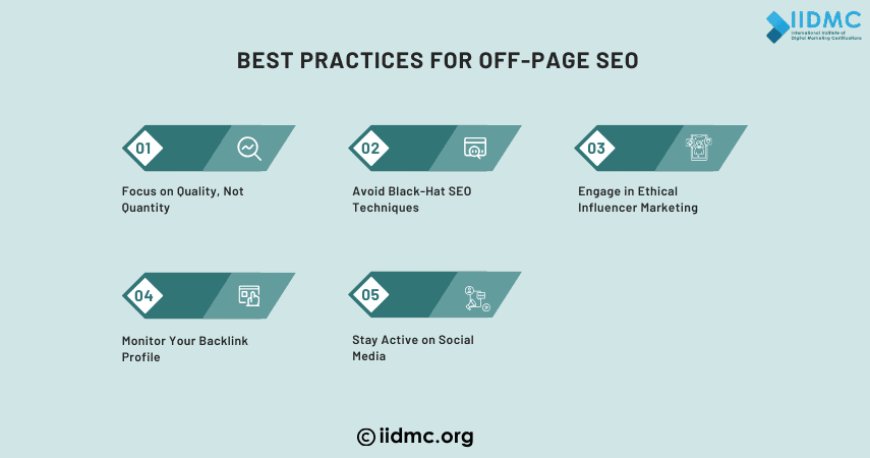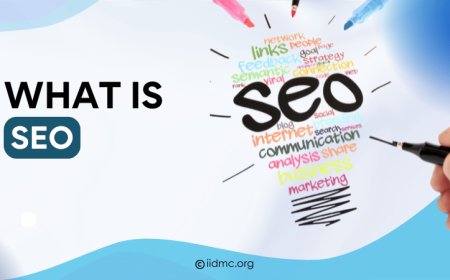How Off-Page SEO Impacts Your Website's Success
Off-page SEO boosts your website's authority and rankings through backlinks, social signals, and brand mentions, driving traffic and improving visibility

Off-page SEO is crucial for improving your website's traffic and rankings. In my experience, getting high-quality backlinks from trusted sites greatly boosts your site’s authority. It's not about how many links you have, but where they come from. Social media also helps drive visitors to your site, increase visibility, and indirectly improve SEO.
Another important factor is influencer marketing. Working with influencers can expose your site to a wider audience and build credibility. Also, regularly checking and cleaning up your backlink profile is key to avoiding harmful links that could hurt your rankings. Overall, off-page SEO helps build trust and authority for long-term success.
What is off-page SEO?
Off-page SEO is all about what happens outside your website that helps it rank better in search engine results. This includes getting backlinks, being active on social media, collaborating with influencers, and having your brand mentioned across the web. These activities tell search engines that your site is trustworthy and relevant, which can help boost your rankings. The more positive signals you send from other places online, the more search engines will see your site as a credible source!
Key Components of Off-Page SEO
-
Backlink Building
Backlinks are links from other websites to yours. They act as votes of confidence for your content and are considered one of the most important ranking factors. The more high-quality backlinks you have, the higher the chances of your website ranking higher. Search engines view these backlinks as indicators of your site’s authority. -
Social Media Engagement
While social media signals are not direct ranking factors for search engines, social media platforms can drive significant traffic to your website. Active engagement on social platforms helps create brand awareness, increase visibility, and build trust, indirectly boosting your site’s SEO performance. -
Brand Mentions and Citations
Even if your brand isn’t directly linked to a site, being mentioned or cited across various platforms can improve your site’s authority. Brand mentions on credible websites indicate to search engines that your website is recognized and trustworthy. -
Influencer Marketing
Collaborating with influencers can lead to valuable backlinks and increased brand exposure. Influencers who share content related to your brand can help you reach a broader audience, which can drive more traffic and indirectly benefit your SEO. -
Guest Blogging
Guest blogging on reputable sites allows you to share your expertise and earn backlinks. Writing high-quality content on popular blogs in your niche helps position your website as an authority, building credibility and improving SEO.
How Off-Page SEO Impacts Your Website's Success
-
Improved Search Engine Rankings
One of the most direct impacts of off-page SEO is the improvement in your site’s search engine rankings. Backlinks from high-authority sites, brand mentions, and social signals all contribute to better positioning on search engine results pages (SERPs). -
Increased Website Traffic
Off-page SEO activities like social media promotion, influencer marketing, and backlinks can drive significant traffic to your website. The more high-quality backlinks and mentions your site has, the higher the likelihood that users will discover your content through other channels. -
Enhanced Domain Authority
Domain authority (DA) is a metric used by search engines to determine the strength of a website. A higher DA generally correlates with better rankings. Off-page SEO techniques, such as acquiring authoritative backlinks, can enhance your domain authority, resulting in better rankings and more trust from search engines. -
Better Brand Visibility
Engaging with your audience on social media and collaborating with influencers increases your brand's visibility. The more your brand is recognized and mentioned online, the higher your chances of building a loyal following, which leads to increased traffic and conversions. -
Building Trust and Credibility
Off-page SEO helps you build trust and credibility by leveraging backlinks, brand mentions, and influencer endorsements. Trustworthy websites and well-known brands linking to your content signal to search engines that your website is credible. This trust plays a significant role in boosting rankings and attracting organic traffic. -
Long-Term Results
Off-page SEO offers long-lasting benefits. High-quality backlinks, consistent social media activity, and brand mentions build up over time. As your site gains more authoritative signals, the long-term impact on your rankings becomes more pronounced.
Best practices for off-page SEO
-
Focus on Quality, Not Quantity
A few high-quality backlinks from authoritative websites are more valuable than many low-quality backlinks. -
Avoid Black-Hat SEO Techniques
Stay away from spammy tactics like link farming or buying backlinks, as these can lead to penalties from search engines and harm your rankings. -
Engage in Ethical Influencer Marketing
Collaborate with influencers whose values align with your brand. Build organic relationships that benefit both parties and avoid paying for fake endorsements. -
Monitor Your Backlink Profile
Regularly check the health of your backlink profile to ensure the links pointing to your site are from reputable sources. Disavow any toxic backlinks that could harm your site's credibility. -
Stay Active on Social Media
Share valuable, relevant content on social media platforms, engage with your followers, and participate in online conversations to maintain a strong social presence.

How to Pursue SEO Certifications
If you want to become an SEO expert, getting certified is a great way to show your skills. Here’s how to do it:
-
Pick a Certification Program
Find a trusted SEO course that covers important topics like keyword research, website optimization, and SEO strategies. -
Complete the Course
Go through the lessons at your own pace, and make sure to practice what you learn. -
Earn Your Certificate
After completing the course, take the exam. If you pass, you can earn an SEO certification, such as from the IIDMC (International Institute of Digital Marketing Certification), which is widely recognized in the industry. -
Put Your Skills to Work
Use what you’ve learned by optimizing your website or helping others with their SEO needs.
Off-page SEO is a crucial element of any successful SEO strategy. It helps boost your website’s rankings, attract more visitors, enhance brand visibility, and build credibility. By applying ethical and effective off-page techniques, you can significantly improve your site’s performance and set it up for long-term success.
When combined with on-page SEO, off-page efforts create a well-rounded strategy that helps establish your website as a trusted source. This balanced approach is essential for succeeding in the competitive online world and ensuring long-term growth.




























